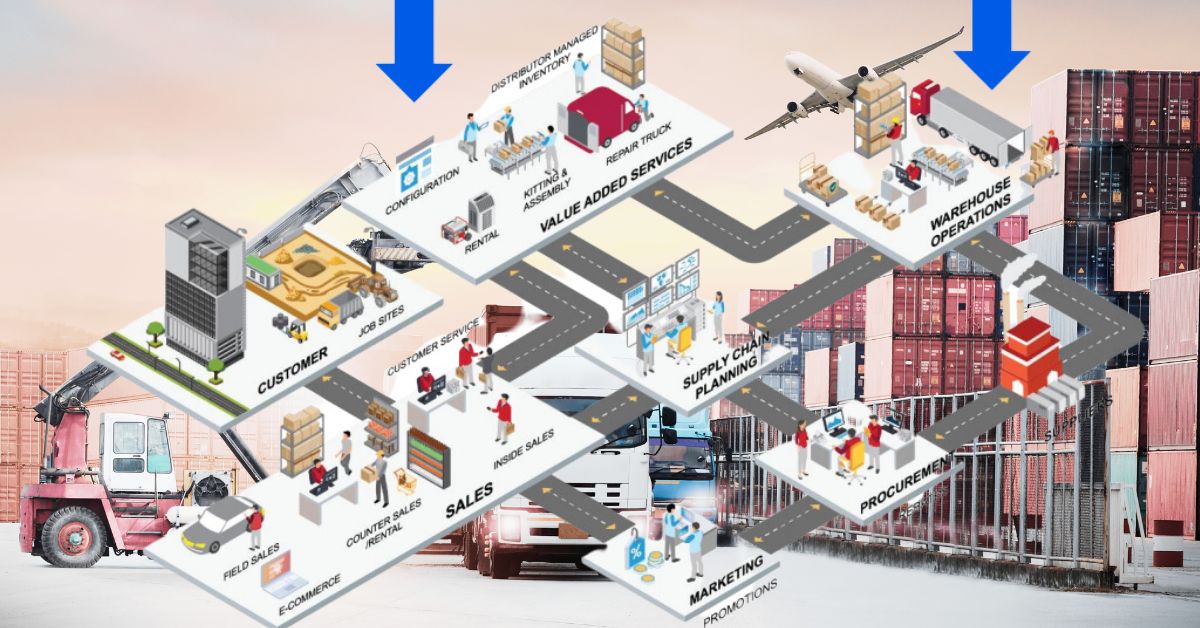DUBAI, UAE — The Middle East and African freight and logistics market is predicted to record a compound annual growth rate of about 6 percent between 2023 and 2028, according to a report from Mordor Intelligence. To tap into growth opportunities in the region, distributors should consider incorporating value-added services (VAS) into their strategies. Infor’s Salem Machaka elaborates further.
Offering value-added services should be a cornerstone of any distribution company’s business model. These services extend beyond the mere delivery of goods, offering additional benefits to customers. They can range from technical support to customized packaging solutions. By providing value-added services, distribution companies can enhance customer satisfaction, foster loyalty, and solidify customer relationships. This approach can lead to increased sales and profits over time.
One of the primary advantages of offering value-added services is the differentiation it provides against competitors. Given the rise of manufacturers deploying disintermediation strategies, the growth of large e-commerce platforms, and the presence of bigger competitors, the competition is intense. By offering a broader range of supplementary services, a company can distinguish itself. This is particularly beneficial for smaller companies that might lack the resources to compete with larger entities based solely on price.
Examples of value-added services include:
- Customized packaging – Companies can tailor packaging to cater to their customers’ needs, which might include specialized boxes, labels, and other materials.
- Technical support – Companies can offer expert support to customers, ranging from guidance on product usage to troubleshooting issues that might arise.
- Kitting, assembly, and light manufacturing – The kitting process groups multiple products into a single, user-friendly package. Assembly involves combining different components into sellable units. Light manufacturing might involve modifying a stock product to meet a specific customer requirement. These services allow distributors to maintain fewer product variations, optimizing space and capital. Offering these services can bolster sales and customer loyalty.
- Vendor managed inventory (VMI) – VMI benefits both the customer and distributor. While the inventory is stored at the customer’s location, it’s overseen by the distributor. This can range from bins to vending machines. For frequently used items like gloves and safety knives, vending machines on the customer’s premises ensure employees have ready access. There’s no need to wait for a supervisor to unlock a cabinet. Customers can monitor consumable usage to manage spending. They can either pre-purchase items in bulk or pay as they are used. As items deplete, replacements can be auto-ordered, eliminating manual intervention.
- Rental and service – Distributors can offer rentals for customers who don’t wish to make outright purchases. High-value or infrequently used tools are typical rental items. Rentals can be long or short-term, depending on the customer’s needs. Additionally, field service can be provided for customers who might lack the expertise to maintain equipment they’ve purchased.
A top-tier, industry-specific enterprise resource planning (ERP) solution is vital for efficiently delivering these value-added services. Distributors grapple with supply chain disruptions, fierce competition, and labor shortages, making it challenging to consistently deliver the products and services customers want.
These are merely a few examples of the value-added services that industrial distributors can provide. By offering these services, companies can boost customer satisfaction, cultivate loyalty, and, in the long run, enhance profits.
Salem Machaka is Infor VP of Global Professional Services.
The opinions expressed are those of the author and may not reflect the editorial policy or an official position held by TRENDS.

